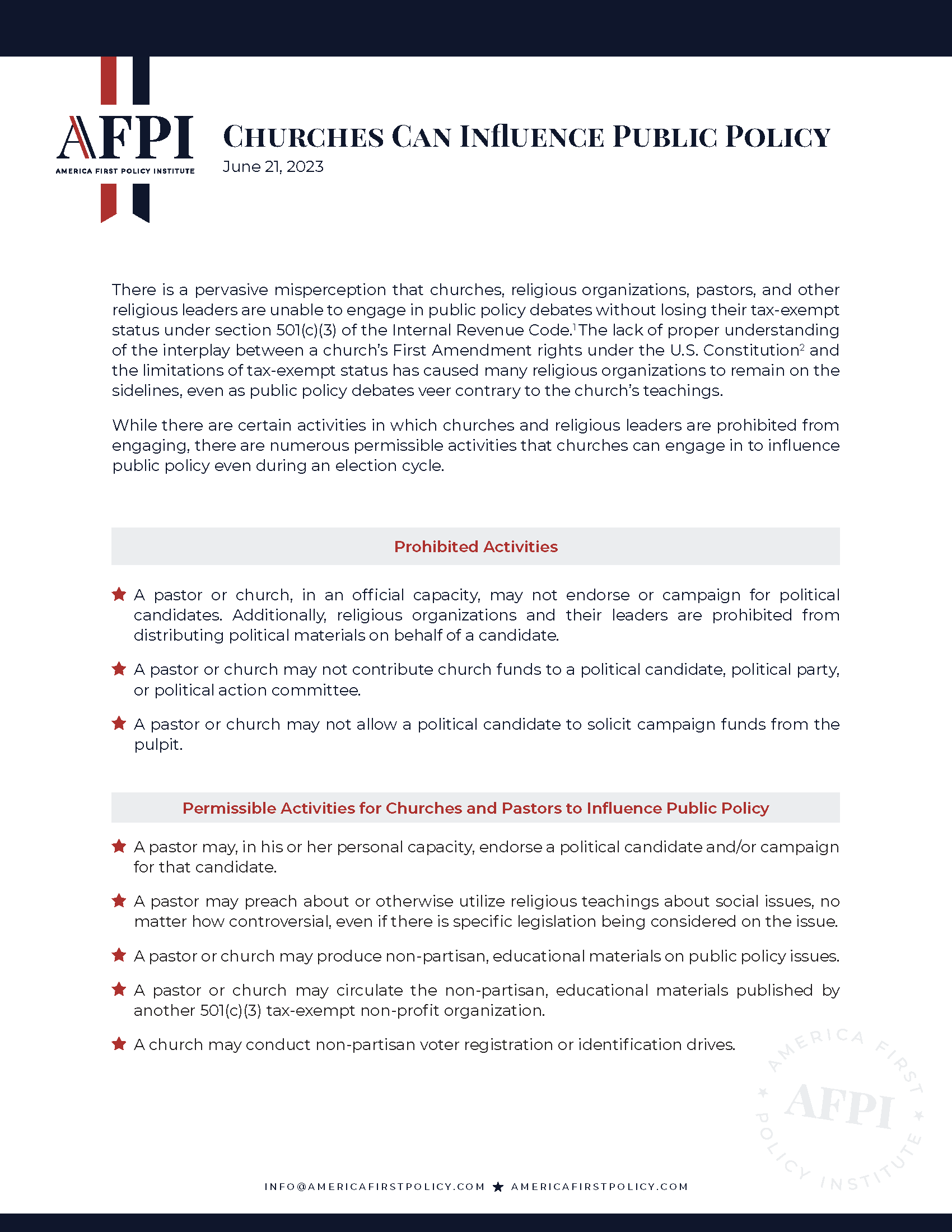FACT SHEET: Churches Can Influence Public Policy
There is a pervasive misperception that churches, religious organizations, pastors, and other religious leaders are unable to engage in public policy debates without losing their tax-exempt status under section 501(c)(3) of the Internal Revenue Code.1 The lack of proper understanding of the interplay between a church’s First Amendment rights under the U.S. Constitution2 and the limitations of tax-exempt status has caused many religious organizations to remain on the sidelines, even as public policy debates veer contrary to the church’s teachings.
While there are certain activities in which churches and religious leaders are prohibited from engaging, there are numerous permissible activities that churches can engage in to influence public policy even during an election cycle.
Prohibited Activities
- A pastor or church, in an official capacity, may not endorse or campaign for political candidates. Additionally, religious organizations and their leaders are prohibited from distributing political materials on behalf of a candidate.
- A pastor or church may not contribute church funds to a political candidate, political party, or political action committee.
- A pastor or church may not allow a political candidate to solicit campaign funds from the pulpit.
- Permissible Activities for Churches and Pastors to Influence Public Policy
- A pastor may, in his or her personal capacity, endorse a political candidate and/or campaign for that candidate.
- A pastor may preach about or otherwise utilize religious teachings about social issues, no matter how controversial, even if there is specific legislation being considered on the issue.
- A pastor or church may produce non-partisan, educational materials on public policy issues.
- A pastor or church may circulate the non-partisan, educational materials published by another 501(c)(3) tax-exempt non-profit organization.
- A church may conduct non-partisan voter registration or identification drives.
Permissible Activities for Churches and Pastors to Influence Public Policy Cont’d
- A church may conduct non-partisan “get out the vote” drives, and the pastor may encourage the congregation to vote.
- A church may allow a political candidate to address the congregation provided that the political opponent is also provided an invitation to address the congregation at another time.
- A church may host a candidate forum provided that all candidates are invited.
- A pastor or church may support or oppose the political appointment of executive branch officials.
- A pastor or church may support or oppose the appointment of judicial branch officials.
Conclusion
Churches and other religious organizations, including their leaders, do not lose their ability to weigh in on public policy by virtue of operating as a tax-exempt organization under Section 501(c)(3) of the Internal Revenue Code. While there is a defined list of impermissible actions, churches and pastors should feel confident that they may engage in numerous nonpartisan, educational activities involving matters of public policy without violating the tax-exempt restrictions, including the examples listed above.
Sources
1 26 U.S.C. 501(c)(3).
2 U.S. Const. amend. I.
Disclaimer. This document includes summaries of complex areas of law and is not specific legal advice. Individuals or organizations should consult an attorney for specific questions about your legal rights.
